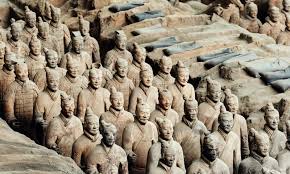In
the span of a few days, two key developments have unfolded in China,
both directly connected to the bid by Xi Jinping to become leader for
life.
One is what is called the "third historical resolution,"
which will be adopted during a key political meeting from Nov. 8 to Nov.
11. The other is the emergence of a timetable for Xi's new political
goal of "common prosperity."
 The Chinese Communist Party has
adopted such a resolution on history twice in the past: first in 1945
and again in 1981. The two leaders behind them, Mao Zedong and Deng
Xiaoping, both held power until they died. Xi looks to follow their
path. The Chinese Communist Party has
adopted such a resolution on history twice in the past: first in 1945
and again in 1981. The two leaders behind them, Mao Zedong and Deng
Xiaoping, both held power until they died. Xi looks to follow their
path.
If the current leader does stay on beyond next year's
party congress, then "common prosperity" is set to be the era's defining
phrase. The Oct. 16 edition of the Qiushi Journal, the party's
theoretical publication, carried an August speech by Xi that outlined
this new political goal.
In it, he pledged to ensure substantive
progress toward correcting the nation's income inequality, resulting in
equal access to basic public services, by 2035. This marked the first
time that a timeline for common prosperity was put forth. What is the
significance? Such a grandiose goal cannot be expected to be met by
2027, the end of Xi's expected third term. Hence the buzz about a fourth
term, from 2027 to 2032. |

No comments:
Post a Comment
Note: Only a member of this blog may post a comment.